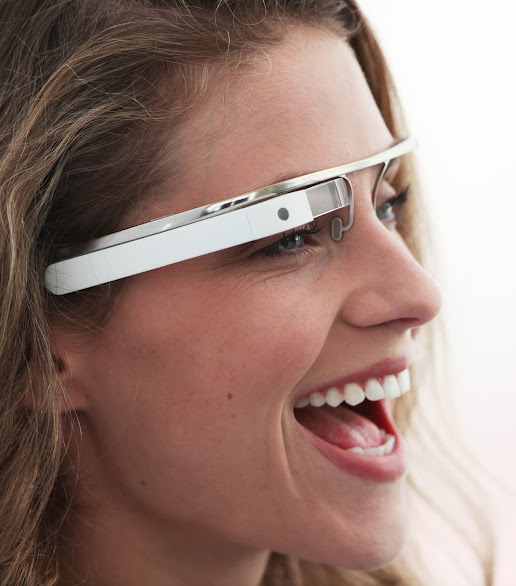Jensen: Augmented reality: A natural phenomenon

Google announced Project Glass on Wednesday, April 4. Google developers are working on a pair of glasses, shown above, that would include a video camera and smartphone technology.
April 16, 2012
You’ve probably updated your status, favorited a tweet, checked in somewhere, pinned something or adjusted your settings on weather and news to fit your desires.
We’re currently desiring that these services and technologies serve us in a way of living a better present day, whether that be for pure enjoyment or an improved way of life.
Data is being produced and put into systems at an alarming rate today. And today, you’ve probably already done this by doing what I previously stated. If you think social networks or other Web services as basic as the news seem like just a game, you’re right.
It’s all a big giant game we’re in and many will say it’s still an improved way of life. I’m not in argument with that. Rather, I’m arguing that this is all to be a game-like experience that progressively becomes a smart technology in the background to train us for an augmented reality.
Augmented reality is defined as “a live view of a real-world environment whose elements are controlled or adjusted by computer-generated sensory.” This idea has been worked on since 1966 by Ivan Sutherland. Also, one of the most recent related project was done in 2009 from MIT that displayed a wearable device for this augmented reality.
The problem with augmented reality is it needs to be smart in that you are constantly training the technology to handle your environment that is fitting with no hindrance. I believe that in a few years, we will begin to see wearable devices that give us augmented reality due to all the amounts of data we have suddenly been entering into the Internet.
Recently, Google teased us with a concept video of what they call Project Glass. While they look fashionable, I believe what is just shown as a concept now will be a reality due to all the data Google is able to capture from you and your surrounding environment.
Google not only has a good map system and method of finding anything nearby — search — but it is heavily focused on building out its social network platform that has been off to a slow start.
Social networks such as Google Plus, Facebook and Twitter hold an amount of data that can be useful, if presented correctly, in developing an augmented reality.
Nick Bilton of The New York Times reported that Google has no immediate plans of producing these glasses under Project Glass as it states, “We’re sharing this information now because we want to start a conversation and learn from your valuable input.”
Today we update our status, favorite a tweet, check into a place we like and really are out to set or make any preferences that make our life more enjoyable. The day of tomorrow will be when our experiences will be more embedded into the real world rather than in this digital life form as they are now.
Why an augmented reality? Our usage of the Internet and these apps will reach a breaking point, and before or right when that happens, we will want all of these technology to be in the background — or at least these major technology companies will want augmented reality to truly be a reality.
Tekla Perry of IEEE Spectrum, in 2010, stated the following:
“As cellphone use increased, hands free headsets became ubiquitous. As augmented reality apps proliferate, it’s likely that we’ll be looking for a hands-free way to use these as well.”
An augmented reality has been worked on, but not until now have the benefits and capabilities of this technology experience come to light.
Entering and receiving data is rewarding and that is what we’re doing today. Tomorrow is just one step closer to our digital world making a positive impact in the real world we live if we so choose to do so. It’s a natural phenomenon.
















